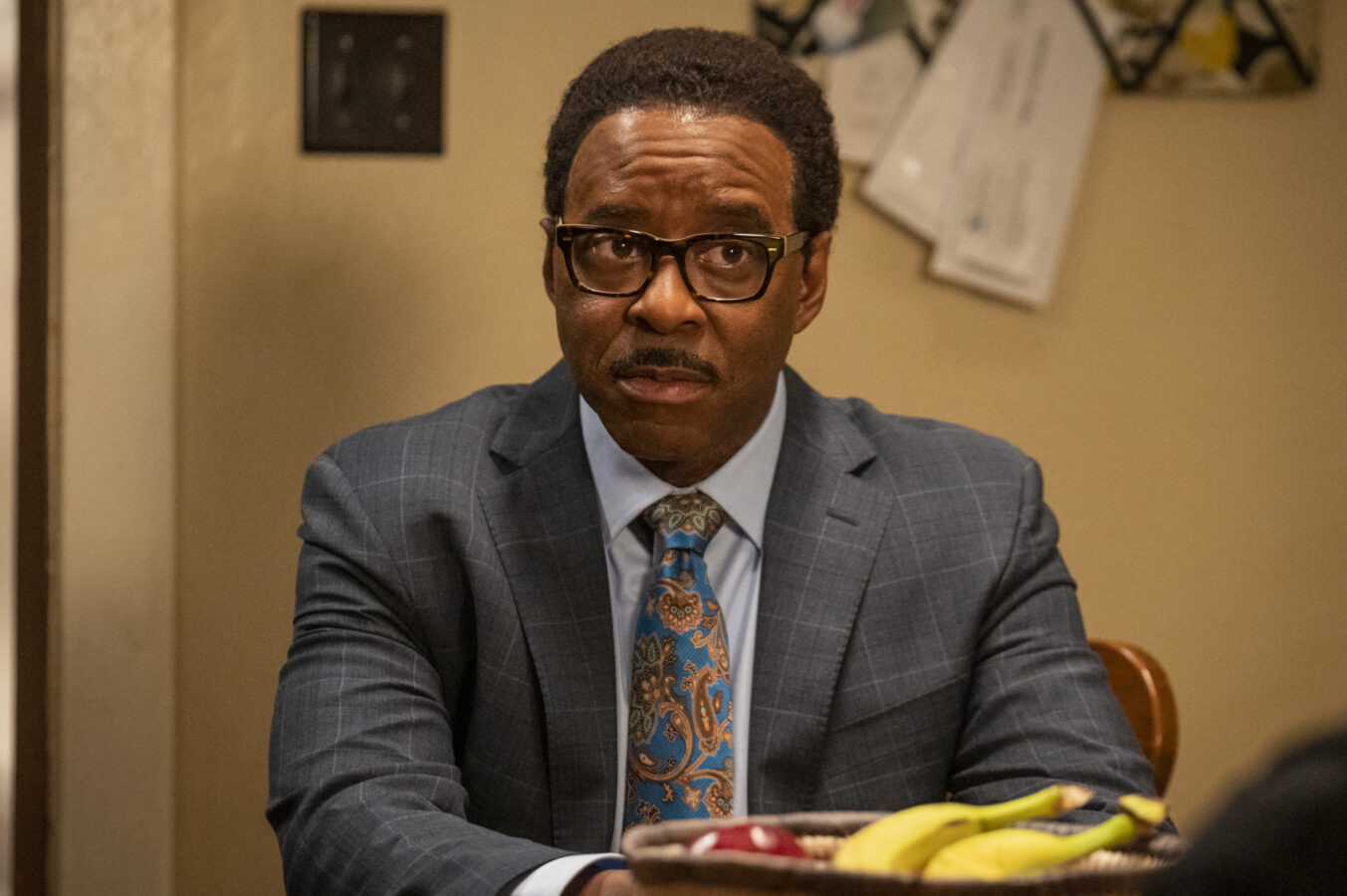Television dramas often lean into portraying major cities with a gritty underbelly, but when it comes to Chicago, it feels like there’s a persistent focus on violence and decay. While it’s true that like any major American city, Chicago grapples with crime, drugs, and issues of police corruption, reducing it to just that narrative ignores the city’s vibrant community and rich Black culture. Chicago is a city that has fostered incredible talent – from music icons like Sam Cooke to influential figures like Ida B. Wells and Barack Obama. Yet, in the AMC series 61st Street, writer Peter Moffat seems to perpetuate a one-dimensional view of the Windy City, presenting it as an urban wasteland.
Executive produced by Michael B. Jordan, 61st Street Season 1 dives into the complexities of a flawed criminal justice system against the backdrop of Chicago’s harsh streets. The show adopts a gritty aesthetic, focusing on law enforcement in a way that often feels like it’s highlighting the very agents terrorizing Black communities on Chicago’s South Side. The pilot episode, however, struggles to resonate deeply. It spends more time developing its portrayal of potentially corrupt cops than giving voice to their victims, underutilizes the talent of Courtney B. Vance, and ultimately, paints a picture of Chicago that fixates on violence and corruption above all else.
61st Street Season 1 centers on Moses (Tosin Cole), a promising Black high school track star caught in the web of Chicago’s legal system as he fights for his freedom. The inciting incident occurs when Moses encounters gang members harassing his younger brother, Joshua (Bentley Green), for the minor offense of crossing into their territory. When police intervene, a drug possession charge is leveled against everyone present. In the ensuing chaos, Moses flees, fearing arrest like his brother.
Officer Michael (Patrick Mulvey) pursues Moses, cornering him near the intersection of 61st Street and King Drive. The situation escalates tragically when, in an attempt to escape, Moses pushes the officer, who falls onto a steel rod and dies instantly. This event transforms Moses into a fugitive, and the police, fueled by vengeance, begin targeting his brother and mother, Norma (Andrene Ward-Hammond). Fortunately, Moses finds an ally in Franklin Roberts (Vance), a seasoned legal advocate weary of the system.
Crime dramas often center on law enforcement, even exploring corrupt elements as seen in series like Shades of Blue and The Shield. However, 61st Street Season 1 doesn’t distinguish itself from these predecessors. Instead, it relies heavily on cop stereotypes, including the trope of police planting drugs on innocent Black individuals. Similar to other shows in the genre, 61st Street dedicates significant screen time to humanizing law enforcement officers, while often portraying Black men, women, and children primarily through the lens of suspicion and criminality. While the series could potentially find more depth by shifting focus to Moses and his family’s experiences, the initial episodes suggest a continued prioritization of the police perspective, granting them more empathy than the communities they impact.
The performances in 61st Street Season 1 feel somewhat muted by the narrative, particularly Vance’s. The series seems to diminish his inherent charisma, replacing it with an overwhelming sense of weariness. Considering Vance’s powerful presence in roles like Johnnie Cochran in The People v. O. J. Simpson, where he exuded confidence even when facing predominantly white institutions, his subdued portrayal in 61st Street is noticeable and somewhat disappointing.

Vance’s subdued demeanor is evident in a courtroom scene where his character, Franklin, attempts to defend a client accused of shoplifting baby formula to feed his child. Despite Franklin’s plea emphasizing his client’s desperation, the judge dismissively labels him a petty criminal and imposes a harsh 30-month prison sentence.
This courtroom exchange feels unconvincing, portraying Franklin as either an inexperienced or ineffective lawyer prone to emotional outbursts before a judge. Given the show’s established backstory of Franklin’s dedication to representing marginalized communities, it seems improbable that he would lose composure in such a setting. A more nuanced portrayal would recognize Franklin’s experience and strategic skills in navigating a biased legal system.
Cole delivers a more compelling performance as Moses in 61st Street Season 1. His calm demeanor and athletic build lend credibility to his role as a track star. A particularly poignant scene occurs during Moses’s farewell meeting with his coach before his planned departure for college. In a quiet, heartfelt moment, the coach presents Moses with new running shoes as a parting gift. This scene allows Cole to showcase his character’s vulnerability and humanity effectively. However, even Cole’s performance cannot fully overcome the limitations of the script, which often feels like a less sophisticated imitation of The Wire.
However, the most significant flaw of 61st Street Season 1 is its questionable depiction of Chicago’s South Side. While the South Side encompasses diverse racial and socioeconomic demographics, Moffat presents it as a monolithic area of poverty and violence, specifically Black-on-Black crime. Yet, a simple online search reveals that the intersection where the officer’s death occurs is situated in Woodlawn, a neighborhood undergoing revitalization and bordering institutions like the University of Chicago.
Furthermore, Woodlawn is home to significant cultural landmarks, including the DuSable Museum of African American History and the future Obama Presidential Center. This factual discrepancy suggests a lack of thorough research on Moffat’s part. Instead of offering an informed portrayal, the series appears to sensationalize the South Side, potentially catering to a stereotypical, and perhaps prejudiced, perception, especially for a white audience.
Peter Moffat has demonstrated his talent for crafting gripping crime dramas like The Night Of and Criminal Justice. However, 61st Street Season 1 reveals a potential gap in his understanding and depth when tackling a complex city like Chicago. Despite negative stereotypes, Chicago is a city brimming with diverse narratives and compelling individuals that deserve authentic representation on screen. Hopefully, future portrayals of major American cities in television will be grounded in more thorough research and a commitment to nuanced storytelling.
61st Street Season 1 airs Sundays at 7/10 p.m. EST on AMC.

